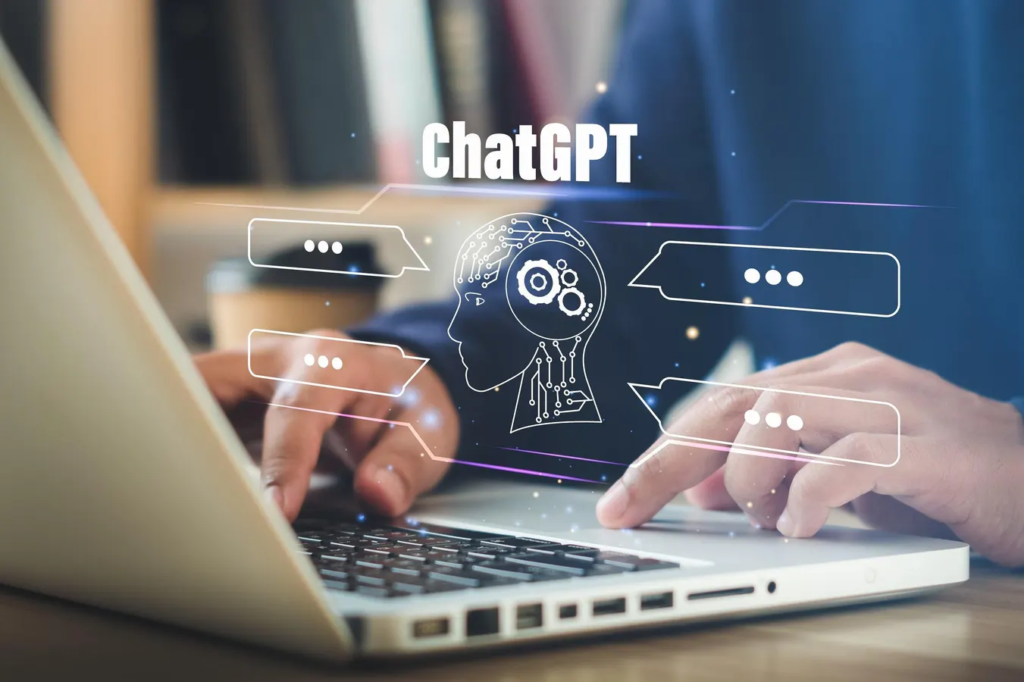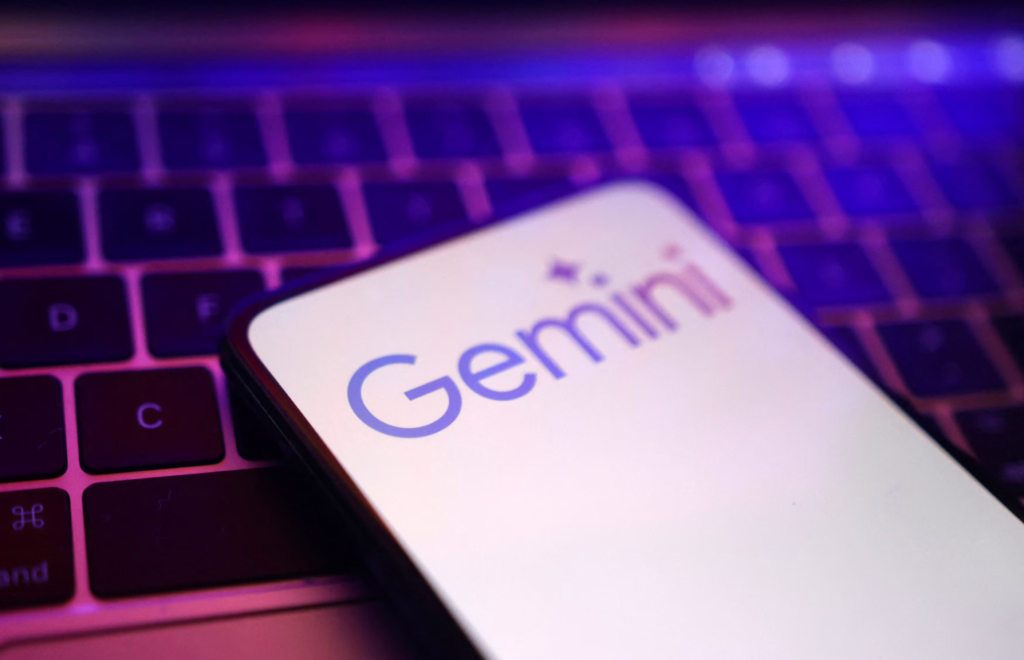In an era where artificial intelligence is rapidly reshaping industries, the competition among AI technologies has never been more intense. With tools like ChatGPT and DeepSeek at the forefront, understanding their strengths and weaknesses becomes crucial for consumers and businesses alike. As emerging rivals enter the landscape, the stakes are higher than ever.
AI technologies have evolved dramatically, driven by increasing demand for intelligent solutions across various sectors. Innovations such as DeepSeek boast unique architectures and performance benchmarks, while ChatGPT has established itself as a powerhouse for real-world applications. As we explore these technologies, we will uncover how each plays a pivotal role in defining the future of AI.

This article delves into the intricacies of ChatGPT, DeepSeek, and other notable competitors such as Groq AI and Gemini. We will provide insights into their design, performance metrics, and market impact, guiding you to choose the right AI tool for your specific needs, whether you’re a content manager or a blogger.
Overview of AI Technologies
Artificial intelligence (AI) is rapidly evolving, changing industries and redefining possibilities. Key advancements come from models like DeepSeek and ChatGPT, each utilizing unique methods for top performance. DeepSeek highlights the rise of open-source AI, promoting accessibility and cost-efficiency in the AI ecosystem. Such models challenge proprietary counterparts by offering better cost-to-performance ratios.
Below is a table showcasing differences:
| Model | Type | Cost-Effectiveness |
|---|---|---|
| DeepSeek | Open-Source | High |
| ChatGPT | Proprietary | Moderate |
The push for open-source solutions and the ongoing evolution of AI technologies are influenced by tech giants like Cisco Investments and BlackRock Private Equity Partners. These companies are investing heavily in AI infrastructure, including exploring quantum computing for future advancements.
Players like Groq AI focus on language processing and complex tasks, aiming for wide-ranging applications that address both technical and ethical considerations. As we look to 2025, AI continues to be a showdown of competing technologies, driven by the desire for innovation and cost-effective solutions. This evolving landscape promises exciting possibilities for both industries and users alike.
Understanding DeepSeek
DeepSeek is a groundbreaking AI model developed by a Chinese startup. Launched on January 20, 2025, it quickly topped global download charts. Its secret? A Mixture-of-Experts (MoE) architecture. This setup activates 37 billion out of 671 billion parameters per token, making it both efficient and powerful. Trained on 14.8 trillion tokens, DeepSeek excels in complex tasks with precise contextual understanding. Remarkably, it cost only around $6 million to develop, which is far less than the $100 million estimated for GPT-4. This cost efficiency showcases the innovative approach of DeepSeek’s creators.

Architecture and Design
DeepSeek utilizes a Mixture-of-Experts (MoE) architecture. This allows selective activation of parameters, optimizing resource use and speeding up complex queries. Only 5.5% of its total parameters are active at a time, leading to faster responses and lower computational costs compared to traditional models. In contrast, ChatGPT uses a transformer-based architecture that activates all parameters. This highlights the diverse strategies in AI for boosting efficiency and performance. Companies are even redesigning hardware to support these specialized architectures, showing the shift towards AI-specific technologies.
Performance Benchmarks
DeepSeek’s performance is impressive. It boasts a 90% success rate in math tasks, as shown by the MATH-500 benchmark. For coding accuracy, it achieves a 97% success rate, surpassing ChatGPT. However, ChatGPT takes the lead in general knowledge, scoring 91.8% on the MMLU benchmark, while DeepSeek has 90.8%. DeepSeek also performs complex tasks twice as fast as ChatGPT. On the Codeforces platform, while ChatGPT hits the 89th percentile, DeepSeek shines in logic-heavy tasks, proving its capabilities.
Cost-effectiveness
DeepSeek V3 training costs were as low as $5.58 million. This affordability democratizes AI access for small and medium-sized enterprises (SMEs). OpenAI’s ChatGPT offers enterprise-grade models that can be expensive, limiting access for cost-sensitive users. The contrast between DeepSeek’s spending and massive investments like the $500 billion US Stargate Project sparks debate. It suggests that adopting efficient algorithms, rather than lavish spending, fuels AI progress. DeepSeek’s achievements with limited funds are a testament to this approach.
Strengths and Weaknesses
DeepSeek’s strengths lie in coding, multilingual tasks, and self-evolving reasoning. Its transparent reasoning processes set it apart. ChatGPT-4 excels in conversational coherence and contextual understanding, making it versatile for industries. DeepSeek’s move to pure reinforcement learning highlights a new direction. Its open-source R1 reasoning model, launched in January, targets complex problems like coding and math. Despite limited resources, DeepSeek has outperformed ChatGPT in many countries’ app store rankings. This suggests potential gaps in ChatGPT’s market strategy.
Understanding ChatGPT
ChatGPT is an advanced AI model developed by OpenAI. It operates on the GPT-4 architecture, which allows it to generate coherent and context-aware responses. This design makes it versatile across various applications, such as answering queries, coding assistance, and brainstorming ideas. Over time, ChatGPT has improved its ability to understand context and its adaptability during interactions. The model’s training on extensive datasets enables it to provide detailed and informative answers on numerous subjects. ChatGPT is recognized as one of the most advanced conversational AI models, leading in AI-driven text generation.
Key Differences in Performance
DeepSeek’s R1 model is noted for its high accuracy in complex mathematical computations, achieving a 90% rate. It challenges ChatGPT’s position in technical problem-solving. DeepSeek is powered by 600 billion parameters, trained on extensive datasets of 14.8 trillion tokens, making it adept at handling complex tasks. ChatGPT, with its 175 billion parameters, balances performance and adaptability, making it suitable for various use cases. Both models show resilience, but they handle specific challenges differently. DeepSeek slightly outperforms ChatGPT in profanity-related tasks, though both models use such language only in finance-related contexts.
Application in Real-World Scenarios
DeepSeek and ChatGPT are key players in fields like text generation, coding, and troubleshooting. DeepSeek’s open-source approach is a potential disruptor, providing affordable solutions for enterprises. Advanced features like AI reinforcement learning enhance real-world applications, improving their utility. Comparing DeepSeek with models like LLaMA underscores the importance of balancing cost and performance in deploying AI at scale. AI solutions like ChatGPT are used for diverse applications, enhancing sectors such as online learning.
Market Impact and Positioning
The US Stargate Project is investing $500 billion to boost its AI infrastructure. This move is aimed at enhancing competition against Chinese companies like DeepSeek, which performs well with less investment. Different strategies by US and Chinese AI initiatives influence global markets significantly. DeepSeek’s market entry challenges tech spending norms, affecting the tech sector broadly. NVIDIA’s growth highlights AI’s market impact and investor interest in the tech field. Companies like DeepSeek drive sustainable, efficient AI practices, which could redefine industry standards and strategies.
Impact on User Experience
DeepSeek enhances user experiences through advanced natural language processing, providing precise, context-aware responses. ChatGPT also offers improved contextual awareness and language comprehension, making interactions more engaging. AI configs allow for tailored user experiences, such as language-specific models, enriching user interactions. Open-source models like DeepSeek offer customizable experiences, catering to specific needs at lower costs. Performance improvements in models like ChatGPT and DeepSeek enhance user satisfaction by ensuring helpful and responsive interactions.
Coding and Development Tasks
DeepSeek provides precise and structured coding assistance, making it a top choice for users seeking clarity. ChatGPT, known for detailed explanations, supports developers needing comprehensive guidance. Performance tests show DeepSeek with a 97% success rate in coding challenges, outperforming ChatGPT’s 89%. Both models excel in code generation, debugging, and system architecture design, highlighting their utility in development. DeepSeek’s selective parameter activation efficiently processes complex coding queries, optimizing response times and resource usage.
What is Groq AI?
Groq AI is a Silicon Valley company specializing in high-performance computing solutions for AI workloads. Their technology maximizes parallel computing to speed up AI model training and execution. Groq AI focuses on meeting the heavy demands of fields like machine learning, deep learning, and data analytics.
Here’s a quick overview of Groq AI:
| Feature | Description |
|---|---|
| Architecture | Supports machine/deep learning and data analytics |
| Key Strength | Optimizes parallel computing for faster execution |
| Competitive Positioning | Competes with established and emerging tech players |

Groq AI aims to stand out in the competitive AI landscape by offering cutting-edge solutions. Their innovative approach addresses the needs of next-gen AI applications. This strong positioning sets them against both seasoned giants and new startups in the AI world.
In essence, Groq AI harnesses advanced architecture to deliver top-tier performance, marking its spot in the fast-evolving field of AI technology.
Gemini
In recent research by Surfshark, Google Gemini emerged as the most data-intensive AI chatbot. The study analyzed popular chatbots from the Apple App Store. Gemini stood out due to its aggressive data collection compared to others like ChatGPT, Copilot, and DeepSeek. This has raised privacy concerns among users.
Here is a brief comparison of data collection:
| Chatbot | Data Collection Rank |
|---|---|
| Gemini | 1 |
| ChatGPT | 2 |
| Copilot | 4 |
| DeepSeek | 5 |

While Gemini is praised for its advanced features, its data practices are a hot topic. Users concerned about privacy should weigh these considerations:
- Gemini collects a vast amount of personal data.
- It’s crucial to understand how much data you share.
- Consider alternative chatbots with lower data collection if privacy is a priority.
In finding the right AI tool, balancing functionality and privacy is key.
Comparing DeepSeek, Groq AI, ChatGPT and Gemini
In 2025, the AI arena is buzzing with excitement and innovation. DeepSeek is set to launch its enhanced R2 model by Q2. This model promises improved creative capabilities. By Q4, both DeepSeek and ChatGPT will roll out advanced multimodal features. This offers multiple data processing within their applications.
DeepSeek stands out with its focus on resource efficiency and specialized capabilities. It even outperformed ChatGPT in app store rankings in several countries, despite a smaller budget.
Meanwhile, ChatGPT aims to upgrade its infrastructure by Q3 to improve efficiency and reduce latency. This shows their focus on user experience.
Comparison at a Glance:
| Feature | DeepSeek | ChatGPT |
|---|---|---|
| Launch Date | Q2 2025 (R2 model) | Q3 2025 (upgrade) |
| Key Strength | Resource efficiency | User experience |
| New Capability | Improved creative features | Infrastructure upgrade |
| Advanced Feature Date | Q4 2025 | Q4 2025 |
In contrast, Groq AI, with its Language Processing Unit, and Gemini, part of the generative AI trend, are also making waves in Silicon Valley. The competitive landscape reflects diverse strategies as these companies push AI boundaries.
Future Prospects for AI Innovations
In 2025, the AI sector is buzzing with dynamic changes. The US Stargate Project, a $500 billion initiative, spearheads the charge. It aims to bolster America’s AI leadership through key partnerships with tech giants. This effort spans four years and highlights a strategic push in AI advancements.
DeepSeek is making waves by challenging established names like OpenAI. Its cost-effective solutions spark debates on the power dynamics within the global AI scene. This is especially relevant as Chinese firms race ahead with their AI tech. This trend could shift tech investments and competition on the international stage.
Affordability and efficiency are key drivers shaping the future of AI. DeepSeek’s strides in these areas promise more diverse innovations. Such progress opens doors for both businesses and researchers worldwide.
Meanwhile, ChatGPT remains vital to the market, thanks to OpenAI’s vast resources. Its smooth integration into current platforms underscores the importance of solid infrastructure in AI evolution.
Here’s a quick look forward:
| Key Players | Focus |
|---|---|
| DeepSeek | Cost-efficient advancements |
| OpenAI | Infrastructure and resources |
| US Stargate | Strategic partnerships |
Expect these elements to influence future AI developments.
Choosing the Right AI Tool
Selecting the best AI tool requires careful thought. When evaluating options like DeepSeek and ChatGPT, consider their architecture and technology. These factors can directly influence performance and ease of use. Assessing cost-effectiveness is also crucial. DeepSeek offers a budget-friendly alternative, while ChatGPT is known for its high quality and premium price.
Tracking key metrics, like generation count and request duration, helps in evaluating an AI tool’s effectiveness for specific needs. Transparency and ethics should also guide your choice. DeepSeek is praised for its openness but has faced questions about user data privacy. Community support is essential for the AI tool’s future. ChatGPT benefits from backing by a major entity, whereas DeepSeek’s grassroots style showcases its fresh thinking.
Identifying Your Needs
The choice of an AI tool depends on your specific use case. Hardware capabilities matter, as they dictate which model can run locally. Consider latency and accuracy needs, especially for tasks like coding or solving complex problems. AI model performance can vary widely. For example, DeepSeek’s distilled models are designed to mimic complex models while being efficient. It’s crucial to understand the difference between reasoning models, which are great for complex tasks, and conversational models to identify your precise requirements.
Evaluating Performance Metrics
Evaluating performance metrics is key to choosing an AI model. Track input and output tokens, request durations, and generation counts to see which tool best suits your needs. A/B testing and well-structured experiments can help pinpoint which model variations work better in real-world settings. DeepSeek uses pure reinforcement learning to boost accuracy in specific domains. ChatGPT improves constantly, thanks to a fine-tuning process relying on ranked responses from AI trainers. The open-source aspect of DeepSeek-R1 also promotes community-driven progress, refining its architecture for optimal performance, even on simpler hardware.

Considering Cost and Value
DeepSeek stands out in the AI world with a focus on open-source models, providing an alternative to proprietary AI solutions like OpenAI’s. The growing trend toward open and community-based AI is leading to more cost-effective and accessible solutions. Open-source models often provide a favorable cost-to-performance ratio, especially for businesses seeking affordable AI tools. For example, models like LLaMA are cost-effective for large-scale troubleshooting. In a competitive AI landscape, businesses must weigh affordability and customization when picking AI solutions aligned with their strategic goals.
Head-to-Head Comparison Table
Below is a comparative analysis of these AI models:
| AI Model | Speed | Accuracy | Cost | Best For |
|---|---|---|---|---|
| DeepSeek | Medium | High | Affordable, wide range | Research, multilingual tasks, some ethical concerns |
| GROQ | Very High | Medium | Variable | Real-time applications, chatbots |
| ChatGPT | High | High | Premium | General-purpose, writing, coding |
| Claude (Anthropic) | Medium | High | Premium | Safe AI, ethical AI applications, security concerns |
| Mistral AI | Medium | High | Free/Open-source | AI research, development |
| Google Gemini | High | High | Free/Paid | Google services, multimodal AI, language models |
| Meta Llama | Medium | High | Free/Open-source | AI model fine-tuning, development |
Best Overall for Blogging & Content Marketing:
Many organizations opt for a hybrid approach, using DeepSeek for technical tasks and ChatGPT for creative writing. This strategy maximizes the strengths of each AI model. The growing demand for specialized AI suggests that content managers and bloggers should choose models aligning with their expertise and needs.

- ✅ ChatGPT (OpenAI)
- Best for generating high-quality, engaging content.
- Supports long-form articles, SEO optimization, and audience engagement.
- Well-integrated with tools like Notion, WordPress, and Zapier.
- Can refine content based on brand tone and style.
2. Best for SEO-Focused Content:
✅ Google Gemini
- Directly integrated into Google’s ecosystem.
- Can optimize content for search rankings.
- Great for keyword analysis and SEO-driven writing.
3. Best for Ethical & High-Quality Content:
✅ Claude (Anthropic)
- Focuses on safe, unbiased, and ethical AI writing.
- Best for in-depth, research-based, or brand-sensitive content.
- Less prone to hallucinations compared to ChatGPT.
4. Best for Open-Source & Customization:
✅ Mistral AI & Meta’s Llama
- Ideal for developers who want full control over AI-generated content.
- Can be fine-tuned for specific content styles and topics.
5. Best for Speed & Volume Content Production:
✅ GROQ
- Fastest response times, making it ideal for bulk content generation.
- Best for scaling social media content, newsletters, and product descriptions.
Recommendation:
- If you want high-quality, well-structured blog posts → ChatGPT
- If you prioritize SEO performance → Google Gemini
- If you care about ethical, research-based content → Claude
- If you want open-source customization → Mistral AI / Llama
- If you need fast, bulk content production → GROQ


